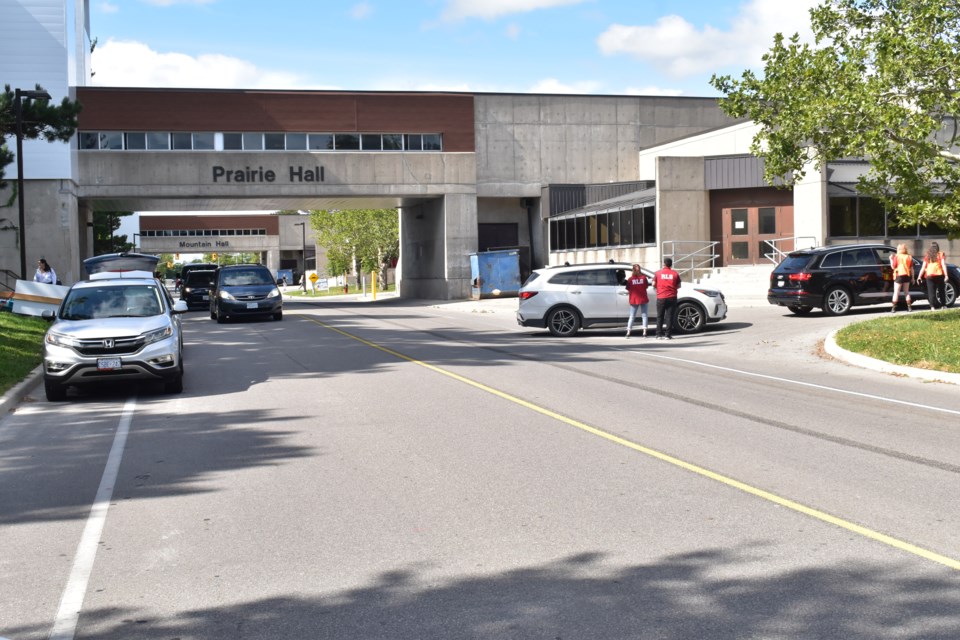More than 90 per cent of the 4,000 students planning on moving into the University of Guelph residence this weekend have reported they will be fully vaccinated at the time of moving in.
The university has set the capacity of the residence to roughly 85 per cent.
According to a spokesperson from the university, vaccination status was not a factor in making room assignments. However, Scott Weese, infectious disease specialist and professor at the University of Guelph and member of the Ontario COVID-19 Science Advisory Table, said that may help curtail any outbreaks.
“There may be a logistical argument to it, there may be the argument that if we’ve got people that are higher risk for being infectious it’s actually better having them with a vaccinated person because they’re less likely to cause disease or severe disease in the vaccinated person,” said Weese.
“When you put a bunch of unvaccinated people together you risk an outbreak because that one person gets it and they’re around a bunch of susceptible people, as opposed to an unvaccinated person around a bunch of vaccinated people. The risk of that spreading out further is lower because of the protection."
Weese said from a control stand point you can argue that it is probably good to have a vaccinated person with an unvaccinated person as opposed to grouping the unvaccinated people together.
“If you put all the unvaccinated people together you're going to get a wreck, probably,” said Weese. “There is a very high chance one of them is going to get it, and all you need is one.”
With the unvaccinated students distributed throughout the residence, the odds of an outbreak with a severe disease is low.
“Living with a vaccinated person isn’t a guarantee because breakthrough infections can happen, but you’re going to be much lower risk living with a vaccinated person over an unvaccinated person,” said Weese.
Students are not obligated to reveal their vaccine status to other students, and the university has not received any directions to alter the current plan.
“We have not been provided with any directives to alter our room assignments,” said Deirdre Healey, news service manager at the U of G. “Any student who has been provided with an exemption will be required to undertake regular testing and the submission of results.”
Those living in residence were required to submit their vaccination status by Aug. 16, or provide the university with a valid vaccination exemption based on medical or other grounds protected under the Human Rights Code.
If an outbreak does occur, the university has a contingency plan in place which will see those infected isolated in a quarantine area of the residence and will be supported with meal delivery and regular check-ins.
Rapid testing and PCR testing are available on campus.
“The University also has strict COVID-19 protocols in place that students living in residence must follow to prevent the spread of the virus including wearing a mask in all indoor common spaces (hallways, lobbies, stairwells, elevators); prohibiting visitors in residence: physically distancing by staying at least two metres apart from others; following posted occupancy limits for shared spaces; practicing proper hand hygiene by washing hands often and using available hand sanitizer; and completing U of G’s COVID-19 daily screening form and following its direction,” said Healey.
